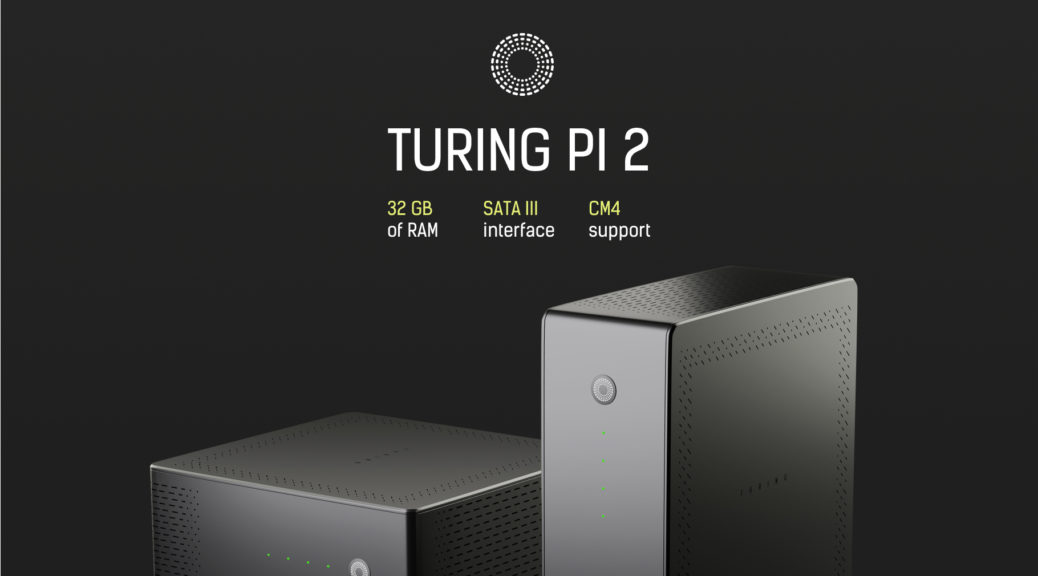
Turing Pi 2
MOUNTAIN VIEW, Calif. (PRWEB)
October 22, 2020
Turing Machines Inc., a company that builds compact clusters for edge computing, announced Turing Pi 2 – a new version of the cluster board that supports the recently introduced Raspberry Pi compute modules 4. The new compute modules come in 32 flavors with up to 8 GB of RAM including Bluetooth and WiFi options, and with a price tag starting at $25. The new Turing Pi 2 is a mini ITX 4 nodes cluster with up to 32 GB RAM, Mini PCIe, SATA III, and a Layer-2 Managed Switch with VLAN support. This is a huge difference in performance and I/O options compared to the previous Turing Pi version.
While working on the new cluster design, the company was guided by the following principles, Turing Machines CEO Constantin Alexandrov said, “We wanted to create a minimal cluster unit with options to connect external storage and extension boards like 5G modem. Next, we wanted the cluster unit to be cost-efficient and easy to scale by connecting and forming larger cluster federations. The speed of scale should be higher than connecting regular computers on the network and cheaper than the typical server hardware. Another thing, the minimum cluster units should be compact enough, mobile, energy-efficient, cost-effective, and easy to maintain.”
One of the most exciting updates in the Turing Pi 2 are 2x mini PCIe (Gen 2) and 2x SATA (Gen 3) ports. The first two nodes are exposed to mini PCI express ports, the third node exposed to 2-ports 6Gbps SATA controller. This allows connecting external SSDs to the cluster and using the network file system within the cluster to access the drives from all nodes. Connecting a network card to the 1st node via mini PCIe can give an extra 2.5 Gbps Ethernet port and can make the 1st node perform as a router for other nodes.
Another interesting approach is that with the Turing Pi 2, the company is implementing a unified compute module interface. This will allow connecting compute modules from other manufacturers and also combine different purpose modules to solve specific tasks like machine learning at the edge.
Use cases
Edge infrastructure for hosting applications & services
Turing Pi 2 is designed as a minimal cluster block for consumer / commercial-grade edge computing infrastructure. It gives an affordable and convenient way to migrate applications that are more cost-effective and practical to host at the edge. Cluster blocks can be linked together and form larger clusters. This can be done gradually without interrupting already established processes. Turing V2 can easily be implemented into the existing clusters (cloud or on-premises) and shared using Kubernetes RBAC.
CI/CD
The Turing Pi 2 cluster is architecturally similar to the AWS Graviton instances. The CM4 processor uses the ARMv8 architecture which allows building images and applications for AWS Graviton 1 and 2 instances. If you have existing local or cloud ARM clusters, the Turing Pi cluster can be used for compilation, testing, and continuous deployment to the production clusters.
The Turing Pi clusters already raised attention within the organizations like Red Hat, Rancher (SUSE), Toyota Connected, Sony, Electrolux, University of Berkeley, University of Santa Cruz, and others. The Turing Pi 2 opens a whole range of a new edge computing application and opportunities.
Share article on social media or email:

